Digital Rights Primer: Difference between revisions
No edit summary |
|||
| Line 21: | Line 21: | ||
=='''The Growing List of Digital Rights Challenges & Issues'''== | =='''The Growing List of Digital Rights Challenges & Issues'''== | ||
It is impossible to list the growing number of issues and challenges addressed by the digital rights community because as technology use grows in our societies, so do the problems associated with it. However, to-date, most problems can be categorized under the following buckets: | It is impossible to list the growing number of issues and challenges addressed by the digital rights community because as technology use grows in our societies, so do the problems associated with it. However, to-date, most problems can be categorized under the following buckets: | ||
====== | ======'''Censorship'''====== | ||
This includes not only technical blockages, but also non-technical tactics such as online harassment. | This includes not only technical blockages, but also non-technical tactics such as online harassment. | ||
====== | ====== '''Surveillance''' ====== | ||
Surveillance can be done in various ways, from hacking into someone's email, to legal requests to platforms for an individual’s data, to purchasing and utilizing spyware. | Surveillance can be done in various ways, from hacking into someone's email, to legal requests to platforms for an individual’s data, to purchasing and utilizing spyware. | ||
====== | ======'''Infrastructure Ownership & Design'''====== | ||
This includes advocating for and advancing the creation of independent infrastructures, such as mesh networks, that are community owned and driven. | This includes advocating for and advancing the creation of independent infrastructures, such as mesh networks, that are community owned and driven. | ||
====== | ======'''Network Interference'''====== | ||
This can include Internet shutdowns to computation or information propaganda, such as disinformation, done either by humans or artificial intelligence. | This can include Internet shutdowns to computation or information propaganda, such as disinformation, done either by humans or artificial intelligence. | ||
====== | ======'''Legal Persecution'''====== | ||
In the last few years, we have seen an increase in laws that criminalize online behaviors, used to persecute people. For example, using encryption technology, or online expression. | In the last few years, we have seen an increase in laws that criminalize online behaviors, used to persecute people. For example, using encryption technology, or online expression. | ||
====== | ======'''Governance'''====== | ||
Attempts to sway international norms, and standards governing how the Internet functions and connects globally, for example, coordinated attacks on encryption, or advancing extreme national data sovereignty laws. | Attempts to sway international norms, and standards governing how the Internet functions and connects globally, for example, coordinated attacks on encryption, or advancing extreme national data sovereignty laws. | ||
| Line 46: | Line 46: | ||
=='''The Organizations/Projects'''== | =='''The Organizations/Projects'''== | ||
The list is long and diverse, but below we are including some categories and examples for your understanding: | The list is long and diverse, but below we are including some categories and examples for your understanding: | ||
====== | ======'''Open source technology circumvention, encryption or safety/security tools'''====== | ||
Examples: [https://www.torproject.org/ Tor Project], [https://signal.org/ Signal], [https://wire.com/en Wire], [https://guardianproject.info/apps/circulo/ Circulo], [https://getoutline.org/ Outline VPN], [https://www.globaleaks.org/ Globaleaks], [https://www.eff.org/https-everywhere HTTPS Everywhere], [https://www.openpgp.org/ OpenGPG], [https://www.gnupg.org/ GNU Privacy Guard], [https://privacybadger.org/ Privacy Badger], [https://addons.mozilla.org/en-US/firefox/addon/noscript/ No Script], [https://www.startpage.com/ StartPage], [https://tails.net/ Tails], [https://www.qubes-os.org/ Qubes], [https://www.tahoe-lafs.org/trac/tahoe-lafs Tahoe-LAFS], [https://amnezia.org/en Amnezia VPN], [https://github.com/clostra/newnode New Node] | Examples: [https://www.torproject.org/ Tor Project], [https://signal.org/ Signal], [https://wire.com/en Wire], [https://guardianproject.info/apps/circulo/ Circulo], [https://getoutline.org/ Outline VPN], [https://www.globaleaks.org/ Globaleaks], [https://www.eff.org/https-everywhere HTTPS Everywhere], [https://www.openpgp.org/ OpenGPG], [https://www.gnupg.org/ GNU Privacy Guard], [https://privacybadger.org/ Privacy Badger], [https://addons.mozilla.org/en-US/firefox/addon/noscript/ No Script], [https://www.startpage.com/ StartPage], [https://tails.net/ Tails], [https://www.qubes-os.org/ Qubes], [https://www.tahoe-lafs.org/trac/tahoe-lafs Tahoe-LAFS], [https://amnezia.org/en Amnezia VPN], [https://github.com/clostra/newnode New Node] | ||
====== | ======'''Network, hardware and ISP providers'''====== | ||
Examples: [https://www.calyxinstitute.org/ Calyx Institute], [https://greenhost.net/ Greenhost] | Examples: [https://www.calyxinstitute.org/ Calyx Institute], [https://greenhost.net/ Greenhost] | ||
====== | ======'''Security vendors'''====== | ||
Examples: [https://www.cloudflare.com/ Cloudflare], [https://www.radicalsecurity.io/ Radical Security] | Examples: [https://www.cloudflare.com/ Cloudflare], [https://www.radicalsecurity.io/ Radical Security] | ||
====== | ======'''Traditional international human rights organizations'''====== | ||
Examples: [https://www.article19.org/ Article19], [https://internews.org/ Internews], [https://www.frontlinedefenders.org/en Frontline Defenders], [https://crd.org/ Civil Rights Defenders] | Examples: [https://www.article19.org/ Article19], [https://internews.org/ Internews], [https://www.frontlinedefenders.org/en Frontline Defenders], [https://crd.org/ Civil Rights Defenders] | ||
====== | ======'''Global rapid response or security networks'''====== | ||
Examples: [https://www.rarenet.org/ Rarenet], [https://www.civicert.org/ Civicert], [https://digiresilience.org/ Center for Digital Resilience], [https://www.accessnow.org/help/ Access Now’s Digital Security Helpline] | Examples: [https://www.rarenet.org/ Rarenet], [https://www.civicert.org/ Civicert], [https://digiresilience.org/ Center for Digital Resilience], [https://www.accessnow.org/help/ Access Now’s Digital Security Helpline] | ||
====== | ======'''Digital safety and holistic security training guides and curricula'''====== | ||
Examples: [https://securityinabox.org/en/ SiaB], [https://level-up.cc/ LevelUP], [https://safetag.org/ SAFETAG], [https://totem-project.org/ Totem], [https://securityplanner.consumerreports.org/ Security Planner] | Examples: [https://securityinabox.org/en/ SiaB], [https://level-up.cc/ LevelUP], [https://safetag.org/ SAFETAG], [https://totem-project.org/ Totem], [https://securityplanner.consumerreports.org/ Security Planner] | ||
====== | ======'''Journalism organizations'''====== | ||
Examples: [https://freedom.press/ Freedom of the Press Foundation], [https://cpj.org/ Committee to Protect Journalists], [https://ddosecrets.com/ Distributed Denial of Secrets], [https://www.pen-international.org/ PEN International] | Examples: [https://freedom.press/ Freedom of the Press Foundation], [https://cpj.org/ Committee to Protect Journalists], [https://ddosecrets.com/ Distributed Denial of Secrets], [https://www.pen-international.org/ PEN International] | ||
====== | ======'''Regional or sub-group focused organizations and networks'''====== | ||
Examples: [https://smex.org/ SMEX], [https://pollicy.org/ Pollicy], [https://socialtic.org/ SocialTIC], [https://paradigmhq.org/ Paradigm Initiative], [https://cipesa.org/ CIPESA,] [https://www.derechosdigitales.org/ Derechos Digitales], [https://conexo.org/en/home/ Conexo], [https://engagemedia.org/ EngageMedia], [https://ocf.tw/en/ Open Culture Foundation], [https://itforchange.net/ IT for Change], [https://www.equalitylabs.org/ Equality Labs], [https://twitter.com/ubunteam Ubunteam], [https://safesisters.org/ Safe Sisters], [https://www.eff.org/ Electronic Frontier Foundation], [https://hope.net/ Hackers on Planet Earth], [https://defcon.org/ Defcon], [https://www.ccc.de/en/ Chaos Computer Club], [https://veinteligente.org/ Venezuela Inteligente], [https://digitalsociety.africa/ Digital Society of Africa], [https://noisradio.co/ Nois Radio], [https://web.karisma.org.co/ Fundacion Karisma] | Examples: [https://smex.org/ SMEX], [https://pollicy.org/ Pollicy], [https://socialtic.org/ SocialTIC], [https://paradigmhq.org/ Paradigm Initiative], [https://cipesa.org/ CIPESA,] [https://www.derechosdigitales.org/ Derechos Digitales], [https://conexo.org/en/home/ Conexo], [https://engagemedia.org/ EngageMedia], [https://ocf.tw/en/ Open Culture Foundation], [https://itforchange.net/ IT for Change], [https://www.equalitylabs.org/ Equality Labs], [https://twitter.com/ubunteam Ubunteam], [https://safesisters.org/ Safe Sisters], [https://www.eff.org/ Electronic Frontier Foundation], [https://hope.net/ Hackers on Planet Earth], [https://defcon.org/ Defcon], [https://www.ccc.de/en/ Chaos Computer Club], [https://veinteligente.org/ Venezuela Inteligente], [https://digitalsociety.africa/ Digital Society of Africa], [https://noisradio.co/ Nois Radio], [https://web.karisma.org.co/ Fundacion Karisma] | ||
====== | ======'''Diverse types of research groups including academic and non-academic'''====== | ||
Examples: [https://ooni.org/ OONI], [https://citizenlab.ca/ Citizen Lab], [https://fair.work/en/fw/homepage/ Fairwork], [https://www.oii.ox.ac.uk/ Oxford Internet Institute], [https://freedomhouse.org/ Freedom House], [https://opennet.net/ OpenNet], [https://cyber.harvard.edu/ Berkman Klein Center], [https://ioda.inetintel.cc.gatech.edu/ IODA] | Examples: [https://ooni.org/ OONI], [https://citizenlab.ca/ Citizen Lab], [https://fair.work/en/fw/homepage/ Fairwork], [https://www.oii.ox.ac.uk/ Oxford Internet Institute], [https://freedomhouse.org/ Freedom House], [https://opennet.net/ OpenNet], [https://cyber.harvard.edu/ Berkman Klein Center], [https://ioda.inetintel.cc.gatech.edu/ IODA] | ||
====== | ======'''Multilateral governmental entities and companies'''====== | ||
Some of the following actors aren’t pro-digital rights, while others have been pioneers in setting important privacy and security standards. However, all have played an important part in discussions: | Some of the following actors aren’t pro-digital rights, while others have been pioneers in setting important privacy and security standards. However, all have played an important part in discussions: | ||
| Line 72: | Line 72: | ||
*'''''Companies:''''' VPN providers like [https://www.tunnelbear.com/ Tunnelbear], [https://mullvad.net/en Mullvad]. Social media platforms like [https://about.meta.com/ Meta], [https://about.twitter.com/en X] (formerly Twitter). Multifaceted companies like [https://www.apple.com/ Apple], [https://about.google/?fg=1&utm_source=google-CA&utm_medium=referral&utm_campaign=hp-header Google] | *'''''Companies:''''' VPN providers like [https://www.tunnelbear.com/ Tunnelbear], [https://mullvad.net/en Mullvad]. Social media platforms like [https://about.meta.com/ Meta], [https://about.twitter.com/en X] (formerly Twitter). Multifaceted companies like [https://www.apple.com/ Apple], [https://about.google/?fg=1&utm_source=google-CA&utm_medium=referral&utm_campaign=hp-header Google] | ||
====== | ======'''Diverse funders'''====== | ||
Examples: [https://numun.fund/ Numun Fund], [https://www.opentech.fund/ Open Tech Fund], [https://www.state.gov/bureaus-offices/under-secretary-for-civilian-security-democracy-and-human-rights/bureau-of-democracy-human-rights-and-labor/ DRL State Department], [https://www.fordfoundation.org/ Ford Foundation], [https://foundation.mozilla.org/en/ Mozilla Foundation], [https://hivos.org/ Hivos] | Examples: [https://numun.fund/ Numun Fund], [https://www.opentech.fund/ Open Tech Fund], [https://www.state.gov/bureaus-offices/under-secretary-for-civilian-security-democracy-and-human-rights/bureau-of-democracy-human-rights-and-labor/ DRL State Department], [https://www.fordfoundation.org/ Ford Foundation], [https://foundation.mozilla.org/en/ Mozilla Foundation], [https://hivos.org/ Hivos] | ||
{| class="wikitable" | {| class="wikitable" | ||
Revision as of 16:51, 18 March 2024
Digital Rights Community & Field Primer
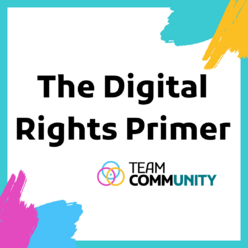
Since much of our daily lives are conducted on both the Internet and digital communication platforms, digital rights have become fundamental human rights in the digital era.
Digital Rights is a term that encompasses not just the human rights all citizens are entitled to, but also the emerging community of practice that actively addresses the different challenges arising at the intersection of human rights, technology and social justice. This includes everything from online surveillance and censorship to dis/misinformation, to even AI ethics and governmental biometrics systems.
As we can imagine, the list of problems and societal threats grows longer each year as technology becomes more prevalent in our lives and bad actors invest more in weaponizing it against the public.
The Digital Rights Community
The Digital Rights Community is a global community of practice that brings together representatives of diverse backgrounds, professions, and 144+ countries, who work together to protect and promote various rights in the digital realm. They are made up of movement leaders, technologists, security experts, civil society organization employees, journalists, researchers, policymakers, and policy advocates, among others. As digital rights issues grow, so does the need to attract new talent to the community.
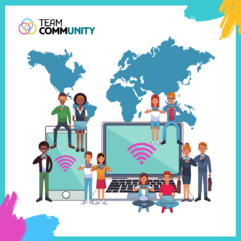
The community has a high percentage of folks that identify as coming from vulnerable groups, precisely because these groups experience the most acute attacks against their digital rights. This includes religious and ethnic minorities from the Global Majority, BIPOC from the Global North, and LGBTQ+ and women from around the world, particularly in places where it may be illegal to be themselves.
As such, vulnerable groups are subject experts in digital rights because of their lived experience, and serve as canaries in the coal mine - tactics and tools are tested on them before they are applied to the rest of the population.
In addition, there is a large representation of technologists and security experts, particularly those that are active in open source communities, and/or social movements. For this reason, you will find many folks that identify as either white hat hackers or hacktivists, or are technologists that are active in social movements.
How to Get Involved in the Digital Rights Community

Keeping yourself informed about the digital rights issues around the world is a great start. The good news: each week Team CommUNITY (TCU) rounds up the most noteworthy digital rights headlines, as well as funding and job opportunities, community news, upcoming events, educational materials and much more in the TCU Weekly Digital Rights Newsletter.

Another good way to get involved is to attend meetups and workshops. Not only can you learn about diverse topics, but you get to engage with individuals and organizations that are active in the community. Check out our Calendar of Events, for up-coming community building activities hosted by TCU. In addition, in our newsletter we have a list of upcoming digital rights events hosted by diverse organizations throughout the world.
The Growing List of Digital Rights Challenges & Issues
It is impossible to list the growing number of issues and challenges addressed by the digital rights community because as technology use grows in our societies, so do the problems associated with it. However, to-date, most problems can be categorized under the following buckets:
Censorship
This includes not only technical blockages, but also non-technical tactics such as online harassment.
Surveillance
Surveillance can be done in various ways, from hacking into someone's email, to legal requests to platforms for an individual’s data, to purchasing and utilizing spyware.
Infrastructure Ownership & Design
This includes advocating for and advancing the creation of independent infrastructures, such as mesh networks, that are community owned and driven.
Network Interference
This can include Internet shutdowns to computation or information propaganda, such as disinformation, done either by humans or artificial intelligence.
Legal Persecution
In the last few years, we have seen an increase in laws that criminalize online behaviors, used to persecute people. For example, using encryption technology, or online expression.
Governance
Attempts to sway international norms, and standards governing how the Internet functions and connects globally, for example, coordinated attacks on encryption, or advancing extreme national data sovereignty laws.
Samples of work conducted by Digital Rights Defenders:
- Creating technology solutions that allow users to circumvent online surveillance and censorship.
- Securing movements and journalists through holistic and digital security training.
- Advocacy, for example fighting draconian laws that penalize the use of encryption or tools like VPNs.
- Pushing for industry standards. For example, advocating in international government bodies overseeing the actual infrastructure of the Internet, pushing for systems to encourage the privacy and security of users.
- Researching and mapping emerging challenges, such as the impact of AI, disinformation, and smart cities.
- Creating collective action around issues like platform accountability, or issues like shadow banning.
However, as more and more issues arise at the intersection of human rights and technology, the list of work becomes longer for digital rights.
The Organizations/Projects
The list is long and diverse, but below we are including some categories and examples for your understanding:
Open source technology circumvention, encryption or safety/security tools
Examples: Tor Project, Signal, Wire, Circulo, Outline VPN, Globaleaks, HTTPS Everywhere, OpenGPG, GNU Privacy Guard, Privacy Badger, No Script, StartPage, Tails, Qubes, Tahoe-LAFS, Amnezia VPN, New Node
Network, hardware and ISP providers
Examples: Calyx Institute, Greenhost
Security vendors
Examples: Cloudflare, Radical Security
Traditional international human rights organizations
Examples: Article19, Internews, Frontline Defenders, Civil Rights Defenders
Global rapid response or security networks
Examples: Rarenet, Civicert, Center for Digital Resilience, Access Now’s Digital Security Helpline
Digital safety and holistic security training guides and curricula
Examples: SiaB, LevelUP, SAFETAG, Totem, Security Planner
Journalism organizations
Examples: Freedom of the Press Foundation, Committee to Protect Journalists, Distributed Denial of Secrets, PEN International
Regional or sub-group focused organizations and networks
Examples: SMEX, Pollicy, SocialTIC, Paradigm Initiative, CIPESA, Derechos Digitales, Conexo, EngageMedia, Open Culture Foundation, IT for Change, Equality Labs, Ubunteam, Safe Sisters, Electronic Frontier Foundation, Hackers on Planet Earth, Defcon, Chaos Computer Club, Venezuela Inteligente, Digital Society of Africa, Nois Radio, Fundacion Karisma
Diverse types of research groups including academic and non-academic
Examples: OONI, Citizen Lab, Fairwork, Oxford Internet Institute, Freedom House, OpenNet, Berkman Klein Center, IODA
Multilateral governmental entities and companies
Some of the following actors aren’t pro-digital rights, while others have been pioneers in setting important privacy and security standards. However, all have played an important part in discussions:
- Multistakeholder and/or Multilateral Government Entities: Internet Governance Forum, United Nations International Telecommunications Union, Freedom Online Coalition, Internet Engineering Task Force, Global Network Initiative
- Companies: VPN providers like Tunnelbear, Mullvad. Social media platforms like Meta, X (formerly Twitter). Multifaceted companies like Apple, Google
Diverse funders
Examples: Numun Fund, Open Tech Fund, DRL State Department, Ford Foundation, Mozilla Foundation, Hivos
The Profiles
Digital Rights Defenders come from all regions, disciplines, and backgrounds. They work on different aspects of digital rights, but ultimately are trying to protect and advocate for activists, journalists, and civil societies from attacks and risks. Here are some common profiles we see:
Review our Digital Justice House Toolkit here, which proposes three transformations in the digital rights workplace to improve your team health:
|
- Movement Leaders
- Journalists & Media Workers
- Community Organizers
- Security Professionals
- Digital Security Trainers
- Software Developers
- Tool Makers (UX, designers, etc.)
- System Administration and Network Experts
- Academic Researchers
- Community Researchers
- Policy Advocates
- Policymakers
- Technologists that come in different shapes, sizes, and skill sets. For example, one can be a technologist who focuses on analyzing the impact tech has on society.
- Diverse professionals working at different types of civil society organizations including grassroots organizations, and large international NGOs.
Want to Work In Digital Rights?
For many of us working in digital rights, we are passionate about the work we do - the significant need there is for it, many times in our own personal communities, for the impact it has, which many times is global in scale, and the amount of creativity and intellectual capital needed to address emerging challenges, which are representative of the most urgent and next-generation issues affecting humankind. In addition, the number of unique and interesting individuals attracted to this work, who truly are some of the best system thinkers found on earth.
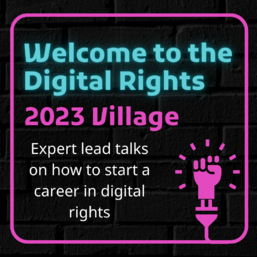
However, as a community we believe in transparency and critical thinking, and its important to highlight the characteristics and problems inherent to this field - its the only way to actually overcome them.
As digital rights is an emerging field, digital rights defenders have to navigate many of the growing pains associated with startups and common challenges found in the nonprofit sector. Things to keep in mind:
- Most digital rights organizations are small and less than 10 years in age.
- Funding is not stable, and most traditional funders are still scared of funding in what they consider a technology area, despite movements, journalists, and citizens experiencing more diverse attacks against their digital rights.
- There is no formalized career path, and many individuals achieve expertise in the field through a combination of self study, actively seeking opportunities, and sheer luck that employment roles open up that fit their profiles. Also, many individuals are “unicorns'' making it difficult to onboard new talent. For example, in many smaller organizations, which make up a large chunk of entities in the space, people wear multiple hats out of necessity. This means that organizational leaders sometimes face difficulties scaling up or hiring effectively.
Sometimes there are pathways through more program management roles into more generalized roles (for example at medium to large nonprofits), or through more specialized expertise in specific sub-fields (for example, researchers at universities focusing on security).
This is one of the reasons community engagement projects like Team CommUNITY are so needed - they help onboard new talent and communities.
- Individuals with technology expertise still hold an advantage. In addition, despite the global nature of the community, most organizations are still grappling with difficult Diversity, equity, and inclusion (DEI) issues. One main reason is that most organizations lack the resources needed to implement effective human resources departments, like those found in corporations, which help with both the outreach to diverse candidates but also the formulation of internal policies and protocols which improve employee health.
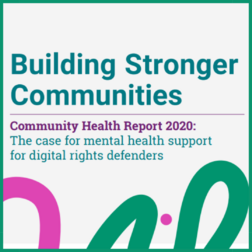
TCU’s 2020 Community Health Report found that one of the main reasons employees at digital rights organizations were burning out was because of diverse types of discrimination and “isms” they found at work, with few tools or mechanisms to counter them. This is ironic, given the critical need there is for underrepresented communities to have leadership in the digital rights space, given that their communities traditionally experience the most acute and sophisticated attacks against their digital rights.
Given the influence open source has in the field, it's worth noting that research indicates that diversity numbers in open source is even worse than in tech overall. For example, a 2017 Github survey found that only 3% of women were contributors to open source projects, and only 1% identified as non-binary, and research indicates these numbers may be getting worse.
While we have not seen research looking into DEI in human rights organizations, TCU community research indicates that generally there are trends of extractive and unhealthy culture and unfair labor practices, where Global North employees usually occupy top leadership positions, and Global Majority employees only receive a fragment of pay compared to their Global North counterpart, for the same work.
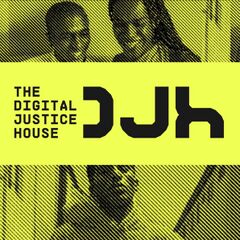
At the onslaught this may seem concerning for diverse talent trying to enter the field, but the one positive aspect is that the core digital rights community is radically self-reflective, courageous to advocate for change, and have quickly pushed for culture changes that in other fields have taken decades.
For some individuals the context of working in digital rights seems exciting, as it provides numerous opportunities to build and be creative. For others, this type of culture can be challenging as it comes with unique stressors (and sometimes long hours). However, what can be agreed upon is that for folks that are interested in human rights and technology, this is a great fit. In addition, the people who are organically attracted to this field, are some of the brightest, interesting and best system thinkers you will ever meet.
Team CommUNITY has been advocating for the adoption of certain employee health-centric policies that we believe are key to improving the culture of many digital rights organizations and projects.
History: How Did Digital Rights Start?
Digital Rights evolved alongside the growth of technology and the Internet. The massification of the Internet began in the 90’s. While this brought incredible improvements, it also marked the rise of online surveillance, censorship, and the privatization of digital resources. Around this time, people started to recognize the importance of protecting various rights and freedoms in the digital realm, similar to those in the physical world.
For the most part, in the early days, most people that instigated this movement were part of technology groups, particularly open source technology communities, which were also core to movements like Internet Freedom and Free Culture. This is because they were also the first to see the rise of cyber threats, data breaches, and privacy violations that showcased the need for protecting personal information online.
Not surprisingly, many of the earliest people addressing digital rights challenges, were technologists that were part of communities such as the 2600 hacker group, which published a popular magazine that covered digital rights issues, or adjacent issues such as freedom of information and expression and speech. They also played a key role in promoting security awareness among the public, and emphasized the importance of understanding security vulnerabilities to protect against potential threats.
Since then, many technologists, directly or indirectly associated with these groups, have played a leading role in creating “circumvention tools,” which are technology tools that circumvent surveillance and censorship.
The 2000's and Now
By the early 2000’s we also began to see the involvement of more social justice oriented groups, as more communities throughout the world began to experience oppression online. Notably, in 2001, the Association of Progressive Communications (APC) published the Internet Rights charter, which served as an Internet Bill of Rights, which served as a catalyst to introduce human rights groups into the discussion. APC was well situated for this, given that it was considered a pioneer in the use of information and communication technology (ICT) for civil society.
Despite these efforts, however, digital rights continued and the impact of technology on societies continued to be enigmatic for the general public and non-technologists. In addition, precisely because of its origin story, the digital rights field itself also began inheriting many of the internal challenges found in the technology field: lack of diversity and equity, a high barrier to entry, and few safe and secure spaces for minority groups.
In the early 2010s, we began to see the digital rights field begin to grow and professionalize as new and significant government money was being injected into Internet Freedom, mostly coming from the US. A large percentage of this money was directed to funding open source technology tools, which means the code was open for all to see and licensed under a copyleft license. The motivation behind this was to promote the free flow and access to information online, which the US government saw as the foundation of stronger democratic societies as they felt it helped citizens hold their government accountable, generate new ideas, and encourage creativity and entrepreneurship.
However, the availability of this new US backed funding was also in reaction to the rise in online surveillance and censorship across the world, which has only worsened throughout the years. This is because authoritarian actors have continued to increase their investment into weaponizing technology to be a tool of oppression.
Alternatively, around this same time, we also begin to see more and more authoritarian adversaries begin to “discover” digital. Either because of the powerful mobilization capacity it provides their citizens (Arab Spring) or because they begin to invest in tactics and strategies that allow them to weaponize the Internet and digital communications. However, some authoritarian regimes were early adopters. China, for example, began to develop their Great Firewall in the late 1990s, which represented extensive censorship and internet control measures.
By 2012, the digital rights community began work to grow and diverse the community for two main reasons:
- Ethics & Efficiency: A large percentage of community members were interested in ensuring diverse representation were part of strategic conversations influencing the shape and priorities of Internet Freedom, digital rights, and technology standards. Most circumvention tools and strategies being created by technologists in the “North” were not working for at-risk users in the “South”.
- Need: More and more groups around the world were starting to directly experience digital rights issues, mostly related to surveillance and censorship. This meant more talent was needed to meet demand.
Since then, the digital rights community has grown to have networks in virtually every region and (sometimes) country in the world. This also reflects the growing number of bad actors that are using digital to oppress and attack a significant growing list of movements, civil society organizations, journalists and citizens. In addition, the evolution of tactics and strategies they are using.
In 2023, for example, common problems, on top of historical surveillance and censorship, include Internet shutdowns, online harassment, disinformation, and biometrics, among others. Much of this evolution is because adversaries have begun to share knowledge, repressive legislative templates, tactics, and resources amongst themselves.
Please contact us at team@digitalrights.community if you have any feedback about our Digital Rights Primer.
